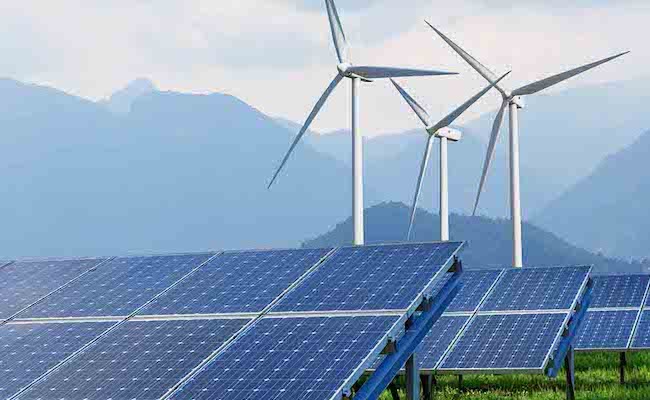Brazil’s booming renewable energy sector, particularly wind and solar power, is facing significant challenges as the country’s national grid operator imposes limits on how much electricity can be delivered. This policy, known as “curtailments,” has led to substantial financial losses for energy producers, prompting some to reconsider future investments in the country.
Renewable Energy Under Pressure
Brazil has made considerable progress in promoting renewable energy, offering incentives and subsidies to attract investments in wind and solar power. However, the rapid growth in these sectors has strained the national grid, particularly in the northeast, a key region for renewable energy. The National Electric System Operator (ONS) has responded by capping the amount of electricity it accepts from these sources, citing safety concerns and the need to manage grid stability.
The curtailments have had a severe impact on energy producers. Executives and industry representatives have expressed concern that the current policy is making renewable energy investments less viable. “Renewable energy for the country is going to waste,” said Eduardo Sattamini, CEO of Engie Brasil Energia, reflecting the frustration felt by many in the industry.
Financial Losses and Legal Battles
The financial consequences of the curtailments are significant. The Brazilian Wind Energy Association (ABEEolica) estimates that the wind sector alone has lost approximately 700 million reais ($128 million) over the past year. The Brazilian Solar Association (Absolar) reported a loss of 50 million reais in just four months through July 2024. Companies like Equatorial Energia and SPIC Brasil have been particularly hard hit, with some wind and solar farms losing over half of their generated electricity due to grid rejections.
These losses are compounded by the fact that energy producers are often forced to buy electricity at market rates to fulfill contractual obligations with distributors and consumers. Some companies have resorted to legal action, seeking compensation for the losses incurred due to ONS’s curtailment policies. However, these legal battles are expected to drag on for years, offering little immediate relief.
Future Prospects and Grid Improvements
Despite these challenges, there is some hope on the horizon. The Brazilian government has held auctions to allow private companies to build new transmission lines, which are critical for alleviating the bottlenecks in the grid. While many of these projects are still years from completion, they represent a long-term solution to the current constraints.
In the short term, ONS has announced that a new transmission line will begin operating in September 2024, which should increase the flow of electricity from the northeast into the national grid. This development may help reduce the frequency and severity of curtailments, providing some relief to the renewable energy sector.
However, the uncertainty surrounding the grid’s capacity and the ongoing financial losses are causing some companies to pause new investments in Brazil. “This is not an environment for decision-making about new projects,” said Equatorial Energia, highlighting the cautious approach many are now taking.
As Brazil continues to grapple with these challenges, the future of its renewable energy sector hangs in the balance. The country’s ability to resolve its grid issues will be crucial in determining whether it can maintain its momentum as a leader in renewable energy or if the current problems will stifle further growth.
Source: Reuters



